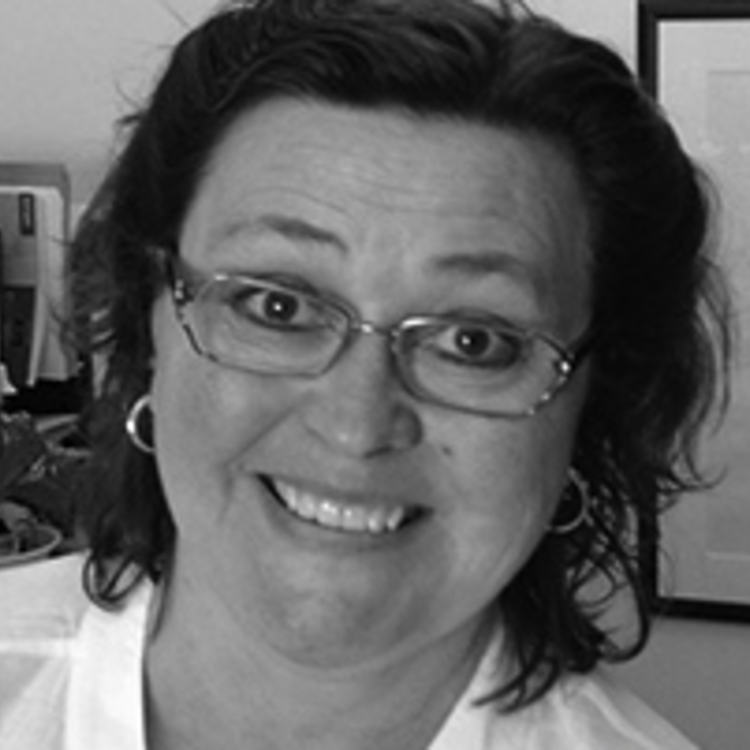Tony Awards Decision on Sound Design
Getting to the Reversal
Introduced and Edited by Martha Steketee
The theatre world was shocked by a sudden end-of-season decision announced by the Tony Awards Administration Committee on Wednesday June 11, 2014 to eliminate the awards for sound design of a play and of a musical, effectively immediately. A June 12 piece in the New York Times summarized the story and offered on- and off-the-record reflections and statements. An on-line petition initiated by sound designer John Gromada to protest this move has been accruing signatures at a rapid pace. And the questions continue. What was the process that led to this sudden decision by the Administration Committee? What does this mean for sound designers? What might be the road back to Tony recognition for this art form?
Chance publisher and sound designer Fitz Patton talked with Cecilia Friederichs on Friday June 13, 2014 to expand on these questions. Cecilia is National Business Agent for United Scenic Artists, Local 829, IATSE, the union that represents sound designers on Broadway and throughout the United States. Cecilia has been on the Tony Awards Administration Committee since 1997.
Cecilia Friederichs: I was on the Tony Administration Committee when they decided to have a Sound Design award. I helped the sound designers bring the petition to the Committee at that time. I think it was voted on several different years before it finally happened. There was a subcommittee formed of members of the Tony Administration Committee and sound designers came in and met with them and talked about issues.
It was discussed in 2006 and 2007, leading up to the first award in 2008, that some of the nominators and voters did not feel qualified to judge what was good sound design, or they didn’t understand sound design.
Fitz Patton: What were some of the hesitations around the idea of the award for sound when it was first instated?
Cecilia: It was discussed in 2006 and 2007, leading up to the first award in 2008, that some of the nominators and voters did not feel qualified to judge what was good sound design, or they didn’t understand sound design. But I think that the same could be said of any other part of the Tonys. Not everyone who votes is qualified to vote in every category, and some people choose not to vote in certain categories for that reason. The honor system is that you don’t vote in any category where you have not seen all the nominated shows, and I think most people stick to that.
Fitz: So the reasoning would be that they weren’t able to establish an objective, an orderly way to decide the relative merit of one design?
Cecilia: That would be a polite way of saying it. But this isn’t the only category where this issue exists. The same issue has always existed for orchestration, and some of the same conversations have transpired about that award. People don’t feel that they are qualified to judge good orchestrations. The other thing that is often said is that what the people hear when they come to the performance is based on whether or not the sound technician is doing a good job. But I don’t know that that is any more valid than, you know, if the lighting goes badly that night, or if the actress has a bad cold—they’re not going to be giving their best. There’s no guarantee that the actress or actor will be giving their best performance on the night that any nominator or voter is there. I think that there is still a prejudice that sound design is not artistic, that it is purely technical. I think that’s the crux of the matter, for some people.
Fitz: Are you saying that there’s a perception that the mix engineer has such a profound effect on the outcome of the perception of the sound that it makes less clear the merit and the role of the designer himself?
Cecilia: I think that’s a fair statement of the commentary: that what you hear is actually dependent on the work of the mix engineer on any given night, and not necessarily the designer. I don’t know if that is a comment you would hear from the general public. Have you been reading the comments that have come in on the petition? I don’t know who these people are but obviously many of them are theatre goers who don’t seem to have any problem recognizing that sound is important. I don’t think that the Tony Committee is saying that sound is not important. But that’s the perception, certainly, of the constituency who has had their award taken away. I don’t think that’s really what the committee thinks. I think that they made a choice to cancel the award instead of finding a way to solve whatever problems may exist in the ability to judge sound design.
Fitz: Producers know who the great designers are because they hire them all the time. So they’re very clear, and they make it clear to all of us because of the way they hire who they hire. So they’re not in the dark in the least.
Cecila: And during the production process they obviously interact. When you get to tech I’m sure that they are having input into the product. So the judging is happening constantly. The people who are participating in creating the production are obviously involved in the aural atmosphere and how it is working. So it is a little bit odd that that same group of people sit in a room and say: well people don’t understand this. I think that people may not understand visual design either, but they trust their understanding of what they see more than their understanding of what they hear.
Fitz: I think you’re confirming my general sense that people feel they are not competent to evaluate anything that they can’t see. You can evaluate the merit of a script because you can listen to it, you can look at things. But when the time comes to commit resources and to produce a show, everyone is quite clear about who the right people to go to are to make it happen.
Cecila: The elevation of the sound aspects in modern theatre, in Broadway theatre to there being a Sound Designer—this is something that happened between the producers and the designers over time. And there are no shows without sound designers anymore. We used to talk about going to hear a play, not to see a play. Plays on Broadway all pretty much have a continual sound scape behind them, below them, beneath it, enhancing, enforcing—right? And people would find that it sounded strange if they went now and that was not there. If you took away all the background—it isn’t just doors slamming and doorbells ringing. It’s the mood stuff that is going under the whole action, in a manner very similar to what happens in a motion picture.
If the play proceeded with no sound system, there would be a general sense of confusion. It’s actually unthinkable that the play would move forward without it.
Fitz: If we went to see Casa Valentina and there was a power failure in the sound booth and there was no sound, they would probably hold the show. If the play proceeded with no sound system, there would be a general sense of confusion. It’s actually unthinkable that the play would move forward without it. First of all, you couldn’t hear the actors, and then there’s everything else that wouldn’t be occurring which is requested by the playwright in the script—he asked for a whole range of things that can only be done by a sound designer.
The broader question I have is: is there a way back? What is most disturbing about all this is that it feels regressive. If you undertake to have an award, and there isn’t anyone who is involved in theatre on any level—producing it, or making it—that thinks that sound shouldn’t have a Tony. Usually when presented with a problem, I think that Americans usually say: let’s figure out how to solve the problem. We don’t know how to evaluate this, what should we do? How can we make it better? And it seems strangely unimaginative to say: well, we’re going to follow up by stopping to try.
I think that for me is the thing that’s most disturbing about it, mostly sort of sad. It doesn’t feel like the answer of an art form that’s trying to expand its reach and solve its problems and figure out how it relates to the present. We have this whole new thing of immersive theatre. Here Lies Love, Sleep No More, Queen of the Night. You have all these events where people are placed inside the playing area—densely immersive and very rich environments in which they literally wouldn’t open the doors if the sound system wasn’t on and all of that stuff wasn’t occurring. Without question there are designers that do different things. You can be a designer and not know anything about music and not write any music. You can write music and not know how to plug in a speaker. And perhaps some of the confusion about how you give an award when you have people who undertake it who do such different things.
Cecilia: Do you think that either the nominators or the voters are aware of anything that you just said? I know about this, but I have been educated by sound designers. I received a very good education when we negotiated the new Broadway sound design agreement several years ago, but I don’t think that either the nominators or the voters know that there are such a range of skills and methods among sound designers.
Fitz: It sounds like the sound design awards were put in place without any effort to support the voters or the Committee in understanding the nature of the art. They understood that there are two kinds of designers, which is great, but perhaps there was not the follow through.
Cecilia: I don’t know that the two awards were decided because they understood that there were two kinds of designers. It was at the same period of time where scenery, costume, and lighting were all divided down into play and musical. For a decade prior to 2008 no play had ever won best costume design when the category was combined because design for a play is so very different from the “all singing and all dancing and all rhinestones” musical designs. Musical design is big and glorious and play design is often so much more subtle, even when its period, that they don’t compare to each other very well. There was this general recognition that there should be separate awards for plays and musicals for design. So when the sound award was instituted, it was done that way because all the other ones had been changed to that at the same time.
Fitz: The cancellation of the award feels embarrassing to me for the country because the award is a national award. It’s well in evidence that you can’t raise the curtain without a sound designer. Every producer thinks that and they pay for it, so that’s clear. This decision feels more confused and timid than it does feel engaged and active. And I think that’s the biggest surprise.
You’re somebody who is willing to put up with the tedium of administration to achieve principled goals that have big outcomes for people in the way they live. That takes a lot of intellectual strength, a huge amount of tenacity, and a comprehensive understanding of some very complex things and how they relate to one another. Do you see a way back, given what you know? And what would be a way that designers and educators and producers who care could be involved, do you think?
Cecilia: I think that a way back needs to be investigated. I have just put in a call to the Broadway League to request a meeting of representatives from the League and the Wing and some sound designers because I think at this point if there isn’t a conversation, where can this go? And I think when John Gromada started this petition, he didn’t really imagine that this many people would sign it. He didn’t really plan for it to blow up so big. And it just went completely out of control immediately. In less than two days 20,000 people said that this is the wrong thing to do.* There are people from the UK and from every part of the country. There are lots of educators who have made comments and people who work in the theatre who have never worked on Broadway. You’re right—it’s a national thing. So I think a conversation should happen between the administration of the Tony Awards and a representative group of sound designers to explore some way back from this. It is my hope that they will be willing to do that.
Fitz: I want to try to find where the problem is and to do my part to convene everyone around that. I think that it would have been so great if, given where they were at, they said: we have this problem and we don’t know how to organize this. I would wish that the Tony Committee, having decided that they were a little lost on procedure and how to discipline and gather the information and make a balanced accurate conclusion, had asked for some help. It can be done. It’s not impossible to do.
So you weren’t present at the Administrative Committee meeting in which this decision was made. It must have been on the agenda for the meeting. Did you know that it was coming up? Or did they give you any notice at all?
Cecilia: It wasn’t announced ahead of time that it was an agenda item. Ken Billington was there for the Union—he’s my “alternate” on the Committee. One of us is at every meeting. And he did speak out against this decision. I want the members to know that we actually did speak out against this.
No. I would have made sure that I was present if there had been advance notice that this was on the agenda for the meeting. Do I think I could have changed the outcome? Probably not. But I would have made sure I was physically in the room had I known. Ken called me as soon as the meeting was over.
Fitz: Because you’re working closely with these folks and you’ve been on the scene for a long time and you’re respected, it seems strange that they wouldn’t involve you at least in the question.
Cecilia: There is a Rules Subcommittee that is supposedly a Subcommittee of the Administration Committee, but the Committee doesn’t pick the Subcommittee. The Subcommittee is completely chosen by the League and the Wing, and the Rules Subcommittee is not really public. I couldn’t tell you exactly who’s on it. I’m sure if I asked I would be told, but I don’t know which members of the Committee are on it. And there might be a couple of people on it who are not on the Administration Committee. I believe that was true last year.
In their statement, now if the Committee finds outstanding excellence in sound design, it can give a special award. But if the Committee has said that they don’t understand sound design, how are they going to do that?

Everything the Administration Committee does is now has more layers of process than when I became a member. And I know that in part it’s because every decision this Committee makes is scrutinized but I sometimes get the feeling that the Administration Committee is turning into a rubber stamp of decisions made behind the scenes.
There are subjective decisions made but they are not capricious. And what they have done here goes against how the Administration Committee is trying to do its job better. They have now by this decision made a Sound Design Award completely subjective. In their statement, now if the Committee finds outstanding excellence in sound design, it can give a special award. But if the Committee has said that they don’t understand sound design, how are they going to do that? How will they know when there was outstanding sound design? Is every producer going to write in and say: we’d like to you consider our production’s sound design? That’s what I would do if I were a producer. So they’ve made it, they’ve taken it out of the objective to the subjective.
Fitz: So what are next steps, do you think?
Cecilia: Well, hopefully they will agree to have a meeting with a delegation of sound designers with the Broadway League and the American Theatre Wing. I’m going to ask to set up a meeting so that a dialogue can be begun here. Something has to go forward. John called me and asked me if I would try and set that up.
Fitz: When do you think, practically speaking, that this meeting can happen— this fall?
Cecilia: This fall? I would hope in the next week. There needs to be a meeting sooner rather than later, because otherwise I don’t think the fomenting out there is going to stop. I think that it should be now.
*As of this publication that number is over 30,000.











Comments
The article is just the start of the conversation—we want to know what you think about this subject, too! HowlRound is a space for knowledge-sharing, and we welcome spirited, thoughtful, and on-topic dialogue. Find our full comments policy here
The Dramatists Guild released a statement in support of reinstating the award on June 26, 2014 on their "The Dramatist" blog. http://dramatistsguild.tumb...
If the Tony committee can't figure out how to recognize a good sound design they should go talk to the film industry, or the music industry.... Obviously both the Oscars and the Grammys know how to recognize what warrants a nomination or award. It seems to me that instead of educating themselves and others on the art of this particular design discipline they are throwing up their hands. Secondly, yes the Mix engineer is very responsible for the sound of a show on any given night, having been in both positions It is the mix engineers responsibility to carry out the design; the same way the Wardrobe department carries out the Costume design each night, or the conductor carries out the Orchestration, Arrangement, and Composition. Musical Directors and Composers should be brought into this committee meeting because they will likely have quite a bit to say about the importance of Sound as an art. Lastly, I will say this... Alot of people like to say that they don't understand Sound Design, or know how to judge what is good or great, yet I feel like this is a total cop-out because those same people (All people) certainly know when it sounds bad.
I designed sound for two theaters in Harrisburg, PA when the announcement was made that Tonys would be awarded for sound design. The validation my editor/engineer and I felt was palpable. It truly felt that finally Tony people realized that they could hear shows and acknowledged that sometimes the effects contributed to production. Now, as Broadway sound has become an even more important part of the production, they want to say, "Oh, I don't understand what it's all about." It's appalling that there's no desire to educate themselves. It's even more appalling that they can't appreciate what they hear the same way they appreciate lights and sets and costumes.
Sound designers and mixers who go to see shows on Broadway (or in my case when the tour comes to Hershey) hear the design, take note of what we hear and apply that to our productions. It's important that sound design be honored on Broadway just as the other artistic contributions are honored. The show is considerably more than the actors. Please continue to honor all of the artistic endeavors that make up the theatrical experience.
I signed the petition and urge those who haven't to please do so.
"that what you hear is actually dependent on the work of the mix engineer on any given night, and not necessarily the designer. I don’t know if that is a comment you would hear from the general public. "
True most audience, and my guess is even the committee members, really don't think about who is responsible for sound, they also really don't think about the costumes or set etc, although they may think they do. A designer comes up with the idea and they usually have a team that brings it to life. Many ideas may actually come from the seamstress making the costume or the person building the set, it's no different with sound. Theatre is highly collaborative and who is responsible for what is never 100% clear, but we're very interested in praising the one.
Great discussion and great comments from USA, all.
My only quibble is "The cancellation of the award feels embarrassing to me for the country because the award is a national award."
It's a very high profile award, yes. And it has influence, possibly, around the country and the world. But it isn't a 'national award'. If it was, Broadway shows would be judged in comparison to great productions around the country - which they're not. It's an award for the (generally) highest budgeted and (sometimes) most seen and (usually) highest profile 40-50 productions in the country - but not in relation to the thousands of other outstanding productions happening throughout America.
But that's a minor point. Very happy that our unions are standing up together on this, including USA.